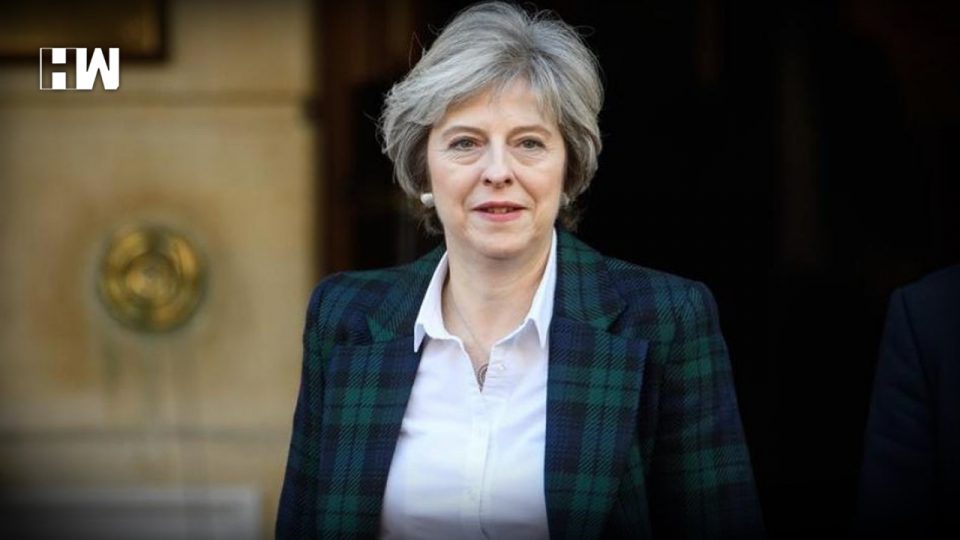London | British Prime Minister Theresa May told her MPs on Wednesday she expects to step down before the next scheduled election in 2022, as she fought an immediate attempt to unseat her over her handling of Brexit by warning it could derail the process.
May offered the concession to members of her Conservative party ahead of a confidence vote triggered by hardliners who hate the divorce deal she agreed with the EU last month. “It is not her intention to lead the party in the 2022 general election,” Solicitor General Robert Buckland told the BBC after the meeting.
“Quite rightly she is focusing on the here and now and the need for Brexit to be delivered.”
MPs and ministers have rallied round May since the confidence vote was announced on Wednesday morning, sending the pound rising amid expectations she would win. In a defiant statement earlier outside her Downing Street office, the prime minister said she was “ready to finish the job” by taking Britain out of the European Union next March.
She warned that ousting her now, sparking a weeks-long leadership contest, would “create uncertainty when we can least afford it”. May also warned that finding a successor — who would automatically become prime minister — “would mean either delaying or stopping Brexit”.
The victory would make the prime minister immune from a further Conservative challenge for a year under parliamentary rules, but would not resolve her central problem — how to get divided MPs to agree to her Brexit deal. She was forced to postpone this week’s vote in the House of Commons on the text after admitting she faced a huge defeat, as her own MPs joined with opposition parties to reject it.
Conservative MPs were voting from 6:00 pm to 8:00 pm in a parliamentary committee room, with results of the confidence vote due at 9:00 pm (2100 GMT). Brexit supporters had for months threatened to submit the 48 letters from MPs needed to trigger a confidence vote in May, seeking a leader who would make a cleaner break with the EU.
The last batch came in after May delayed Tuesday’s vote on the Brexit deal, a move that sparked outrage among MPs of all the political parties. But ministers, including those tipped to succeed May, were quick to condemn the rebels.
“The last thing our country needs right now is a Conservative party leadership election,” Home Secretary Sajid Javid said in a tweet. Finance minister Philip Hammond said May’s victory would unite the party and “flush out the extremists”.
May was informed of the challenge after returning late Tuesday from a tour of European capitals in an attempt to salvage her Brexit deal. She had promised MPs she would seek “assurances” about their concerns over a so-called “backstop” plan to keep open the border with Ireland.
Many Conservative MPs and May’s Northern Irish allies in the Democratic Unionist Party (DUP) fear a plan for a temporary customs arrangement with the EU will become permanent, with no way out.
But while EU leaders expressed sympathy for May’s difficulties, they firmly rejected any attempt to reopen a Brexit deal that was only secured last month after 17 months of talks.
German Chancellor Angela Merkel, who met May in Berlin on Tuesday, said she still “has hope for an orderly exit” but “no intention to change the exit agreement”.
May cancelled a trip to Dublin on Wednesday for talks with Irish Prime Minister Leo Varadkar amid the leadership challenge. She is still expected to attend an EU summit in Brussels on Thursday and Friday.
May has said the parliamentary vote on her Brexit deal depends on her talks with the EU but said it will be held by January 21. Both sides have already stepped up preparations for the possibility that Britain leaves the EU with no deal at all.
Some lawmakers fear the vote might be delayed to pressure MPs into backing May’s deal. A furious opposition Labour leader Jeremy Corbyn accused May of being “contemptuous of parliament”.
If she survives Wednesday’s vote, May could still face a further confidence motion in the House of Commons at a later date. For now, the DUP says it will back her as long as she renegotiates the backstop — even if EU leaders have warned this will not happen.
Her margin of victory Wednesday could also be pivotal in her ability to rally her party behind her in the weeks ahead.
As an independent media platform, we do not take advertisements from governments and corporate houses. It is you, our readers, who have supported us on our journey to do honest and unbiased journalism. Please contribute, so that we can continue to do the same in future.

